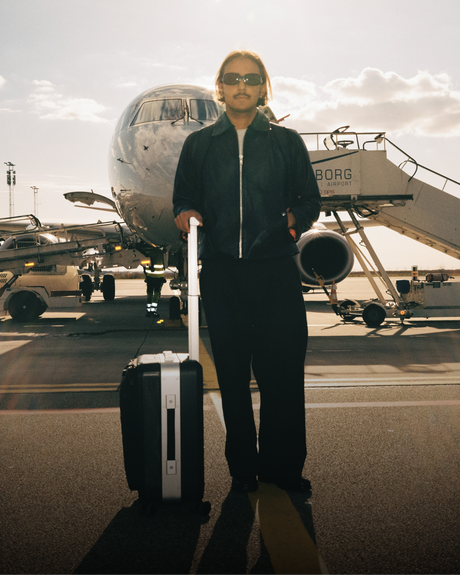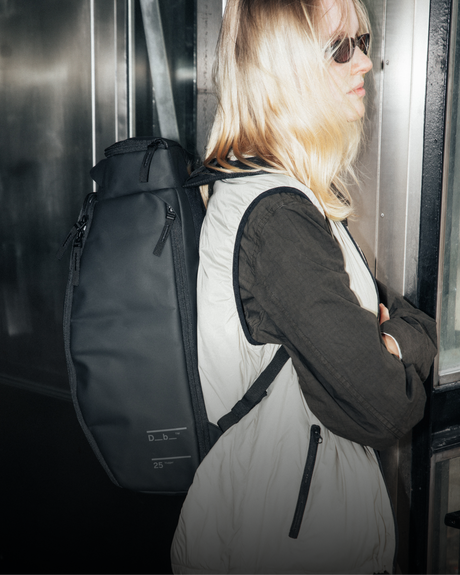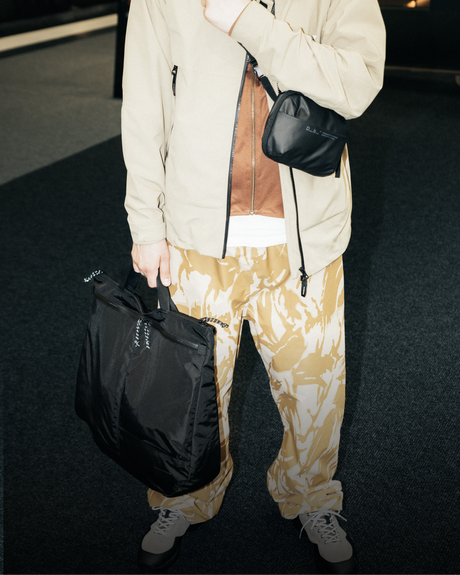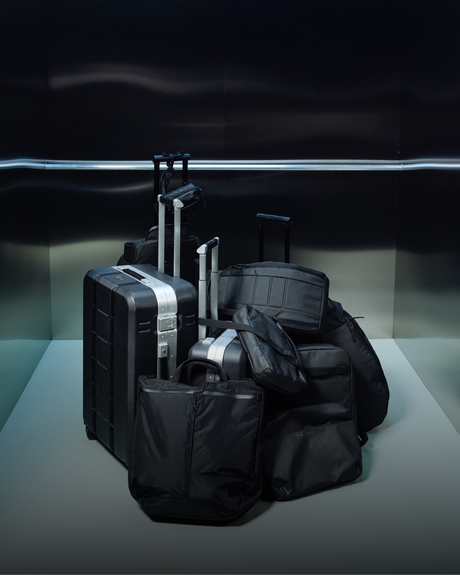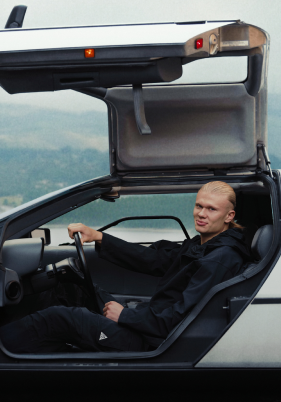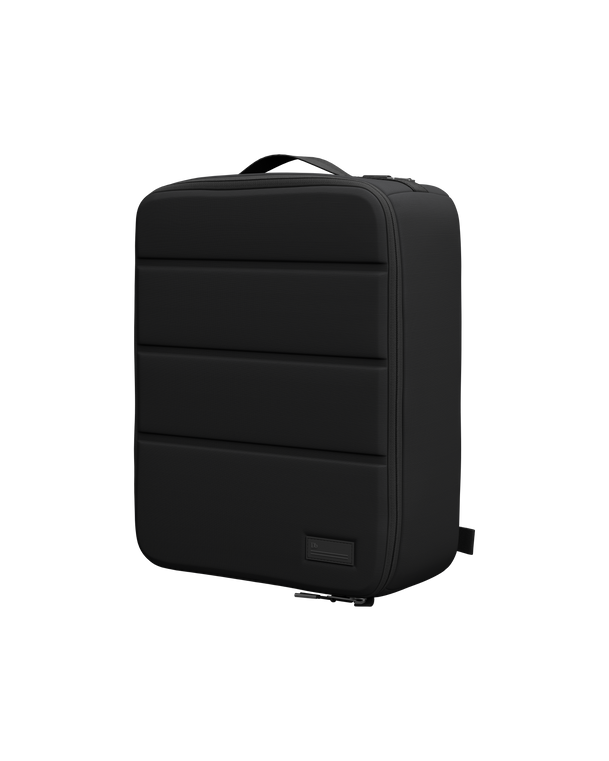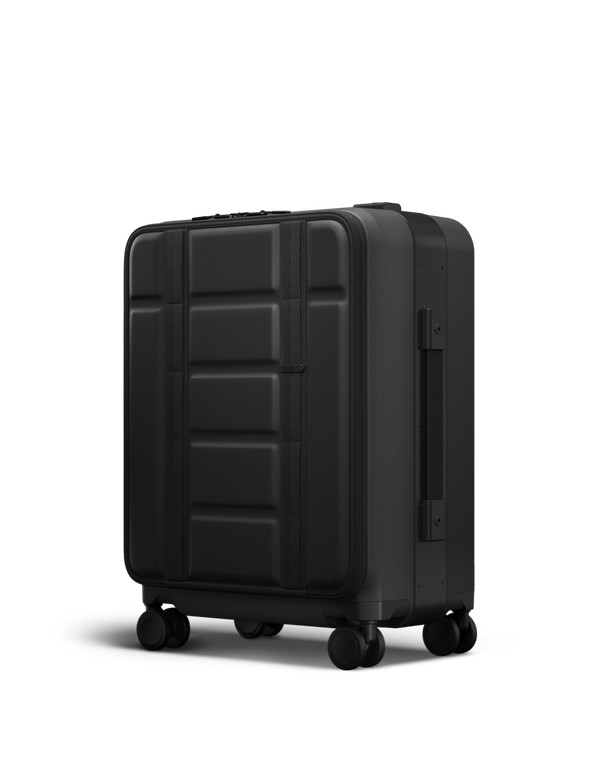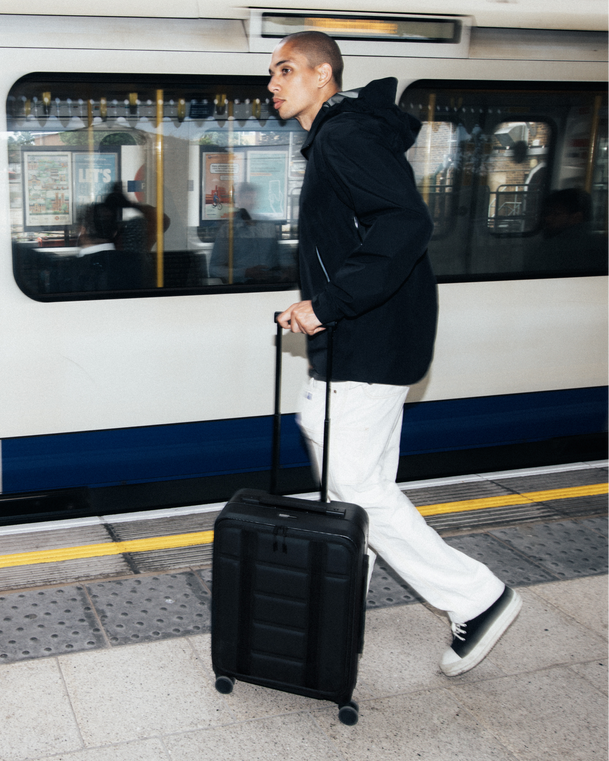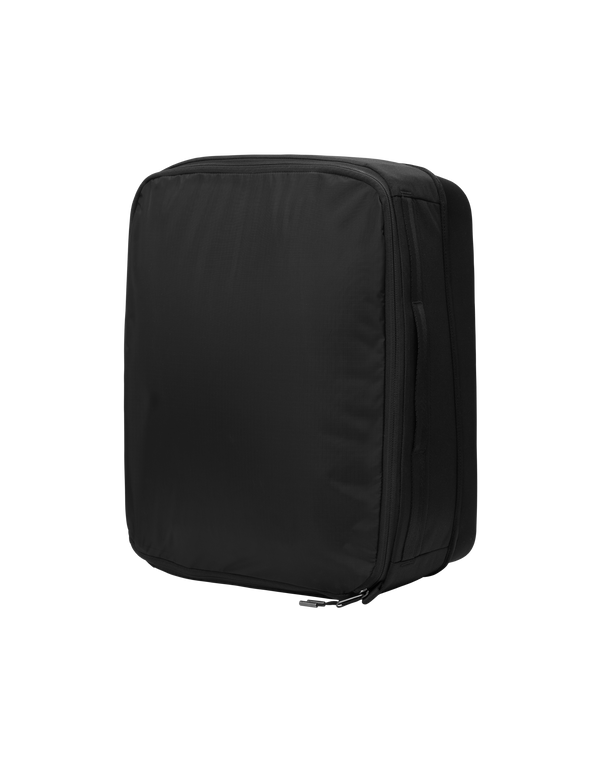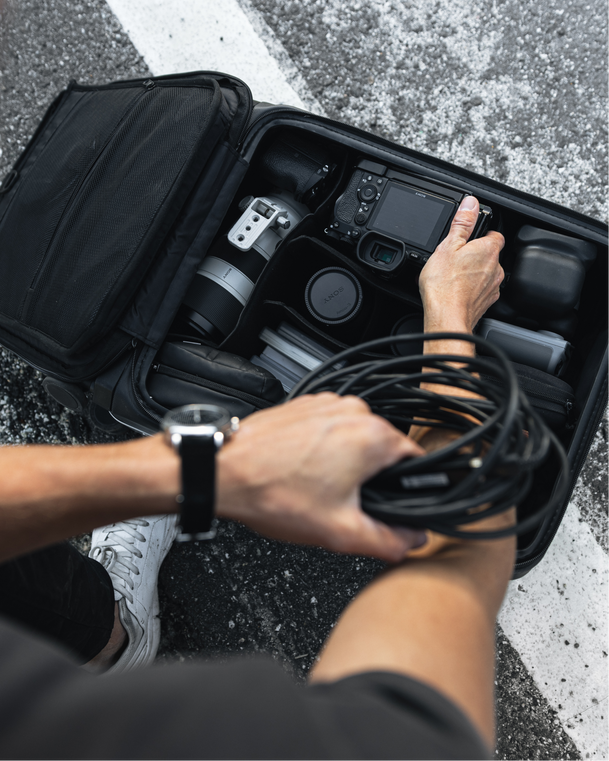We’ve worked with Tim Myers for a number of years now but only got our first proper deep dive into his career when we worked with him on Pack Heavy, Chase Light. We shot with him for a number of days in Los Angeles, and the whole time we were hooked on his stories from around the world covering some of the most important news you hear about. The last few weeks he’s been on the road covering everything from US Politics News Headlines to the war in Ukraine. Timothy’s work is captivating and his words even more so. Its great to hear it straight from the horse’s mouth, so do yourself a favor, take five and give this a read.
Hey Timothy,
It’s been quite a whirlwind keeping up with you. We saw you were in Florida working on a political coverage piece, then you managed to get in some skiing and now you’re in the Ukraine. We know you love to travel but that's quite a month…
Can you give us an insight into what it’s like to be a cinematographer covering events like the arraignment? I guess security must be tense and listening to The New York Times podcast, I heard that only a select few people were allowed in?
"Security is always tight whenever the Secret Service is involved. And like all former Presidents, Trump is still entitled to that level of protection. As the world saw live, he was arraigned in Manhattan in the morning, then flew his plane back to West Palm Beach to give a speech in his Mar-a-lago ballroom. I was filming for an Australian network, which was one of about 20 international outlets granted access. We all had to arrive about 6 hours early, pre-set our camera's, lights, and live equipment in the gaudy chamber, then go wait in the carpark while Secret Service agents sweep the room with their dogs. When they're satisfied, we're marched back inside to do final checks before the main act arrives.
I don't find the security itself tense, those are just slightly annoying hoops we're made to jump through for the "privilege" of being in the room. What is intense, is the 45 minutes he's on stage. In that time, we need to nail a journalist piece-to-camera at the right moment with Trump's grand entrance in the shot, navigate the many technical issues that comes with broadcasting live in a room seemingly resembling a Faraday cage, as well as record enough b-roll for the evening bulletin. The whole brief is more clinical than it is creative, but moments in history rarely allow time to adjust your lighting."
The last seven years (since his term began) have been wild, but would you say this has been one of the most engaging times in terms of media and journalism. The Obama days must seem quite plain sailing in comparison?
"I was still living in Australia during the bulk of the Obama administration. And the closest I got to him was in 2010 while waiting in Jakarta for three weeks ahead of his Asia tour, which was delayed and delayed before being ultimately canceled due to a government shutdown back in Washington D.C.
…so not close at all.
I relocated to Los Angeles just before Trump announced his candidacy around 2015. Even though this was my introduction to U.S. politics, I'm confident saying the following years redefined the state of journalism in America. Never had the White House demonized the press pack with such vitriol. On the other side, newsrooms adapted their journalism to cover an unusually disingenuous and corrupt president, increasingly for the zeal of an ever-fractured audience. Reporters leaned into the Twitter algorithm like a narcotic as "Trump outrage" grew followings and fueled media profits. He'd respond directly with a variety of theatrical tantrums, personal insults, and violent threats. And so the pendulum swung; from scandal, to impeachment, to riots, to insurrection, to an indictment 4 years after the man vacated the oval office.
For me, behind the camera, I experienced everything from tear gas from Trump-deployed federal agents, constant media-bashing, accusations of bias at his rallies, to a riot shield in the stomach from White House police clearing the way for a
photo he wanted to take. My colleagues and I had to add military grade gas masks, body armor, ballistic helmets, and trauma packs to our regular kits. I've been less prepared working in countries designated as actual conflict zones.
Framing up shots through a gas mask frequently in 2021 was anything but plain sailing. By comparison, my involvement in the indictment coverage has – so far – been a routine day."
The intensity and adrenaline of your job means you must have to be rigorous with the way you choose to relax and unwind. We saw you went skiing recently - are the mountains where you feel you can best decompress and take five?
"Oh yes, skiing... I love it. Nowadays, skiing keeps me somewhat sane in-between these deployments.
Mammoth Mountain broke its snowfall record (over 700 inches). I spent Christmas and New Years up there, and then squeezed in as many days as I could this season. Every one of them a consistent powder haul. We’ll be riding Southern California well into July this year.
I got married back in November in Mexico, and Amy and I had a planned honeymoon to Chamonix and Zermatt (thank you Ikon Pass). Ironically, we left California just as the snowpack was nearing 6 meters. While our U.S. friends were reveling in face deep powder, we were making the most of a French and Swiss low-tide. We both grew up skiing in Australia, so it doesn't take much to make us happy when it comes to snow quality. And we each have our own passions in the mountains... I introduced her to backcountry-touring in the alps. She introduced me to mid-mountain champagne bars. There were no bad days."
Now, we catch you in Ukraine. I don’t know where to begin, but maybe start with how far you are from the front lines and what daily life is like for people living in Ukraine right now.
"Firstly, I'm not near the fighting, but there is evidence of war. In the city of Lviv, where we are predominantly based and somewhat considered a safe zone, we see frequent military checkpoints, sandbagged buildings, and some repair construction from the air strikes that made it this far west as recently as March.
Here in the western part of the country, daily life is business as best as possible, with an undertone of unease among residents. We are eating at restaurants in the evenings, and then enjoying a quick nightcap at bars (before the curfew) alongside our local production team. Though being military-aged-males, they are all visibly nervous about being recruited into the draft and sent to the frontlines. This is a reality many young Ukrainian's have been facing for over a year now. I can feel the tension eyeballing me in the street... there aren't many 30-40 year old men openly walking around not already wearing a military uniform. Though no one here remains unaffected. Our local fixer tells me there are daily funerals in Lviv for residents who aren’t returning from the East.
How much do you worry for your own safety there?
"Right now, my own safety is absolutely a consideration, but not necessarily a worry. Occupational health and security should always be a top priority for anyone once you board the plane. Nothing ruins a trip quicker than someone getting ill or a stolen passport.
On our second night in-country, air raid sirens woke us at 3am. It was a non-event, but we realized our original emergency egress plan (should we need it) was outdated due to overcrowding towards our chosen border crossing. We formulated a new one, and then hoped we wouldn't have to use it. It often sounds more dramatic than it is (especially when you use words like 'egress'), but any level of risk assessment is great practice for either honeymooners or production teams alike.
Our team flies from here to Kenya next week where Nairobi is in the midst of violent protests. Civil unrest is usually more disorganized than war, so that has the potential to present a new set of concerns to consider."
When covering a macro situation like the war in Ukraine and something that has been in the press for over a year, what's your angle to make it understandable and I guess ‘relatable’ for people outside that part of the world?
"I'm actually not here for news coverage. This is a documentary film – focused on Ukraine's agriculture industry – which, compared to news is a very different filming process. But like you, I've been watching the same CNN news pictures of bombed out buildings for the past year, so I wasn't really conditioned to arrive and be reminded that Ukraine is still very much a functioning country.
As war continues in the east, farmers are fighting on a different front in the west; one to feed the population. It's relatable in that the farmers here kick their tractor tires in the same fashion as farmers back in America or Australia. The same climate change, soil erosion and biodiversity loss facing agriculture globally, is felt here. Except here, "Europe's breadbasket" has an added side of geopolitical destabilization. And we're all experiencing the effects of disrupted global trade: have you noticed your food bills soaring? In this instance, Ukraine are major suppliers of wheat and sunflower oil, and Russia is the world’s top fertilizer producer. Your morning toast is presently navigating an intricately complex and costly web of global trade sanctions enroute to your
plate. That's why this is a story worth your attention."
That's fascinating and 100% a story worth telling. We can’t wait to see it.
Changing the subject and lightening the mood somewhat, can we get you to come to Europe again this summer? I’m thinking waves, rosé and then some more waves? We’re always ready to see you two!
"Yes. Hard yes. To all the things."
- Thanks Jon
